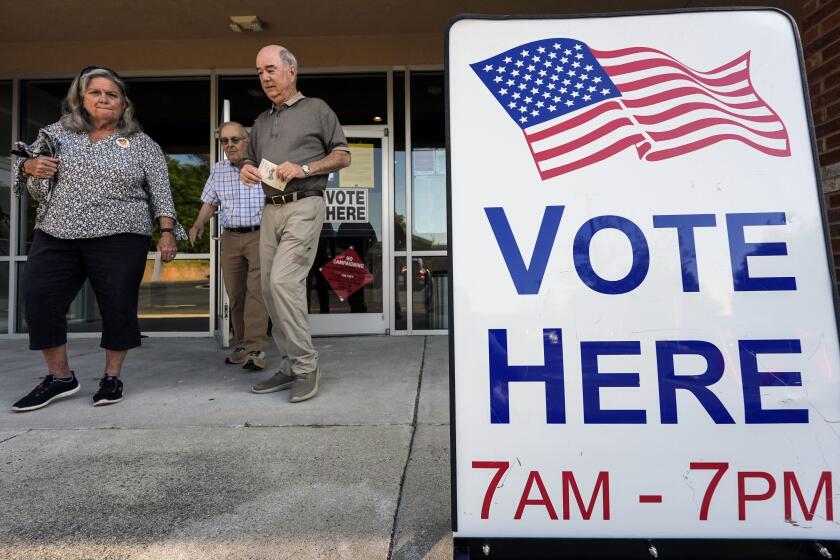The California Legislature is on the brink of welcoming one of its most significant freshman classes in over a decade, as the November elections approach. This is a pivotal moment, as special interest groups have invested millions in Democrat-versus-Democrat races to influence which new representatives will go to Sacramento. The independent campaigns, fueled by substantial funding from major tech companies, labor unions, and law enforcement organizations, could play a crucial role in determining the ideological balance between liberal and moderate lawmakers within California’s Democratic supermajority. The outcomes of these contests will likely shape pivotal legislation concerning climate change, education funding, healthcare, criminal justice reform, and workers’ rights.
Particularly notable are four high-stakes Democrat-on-Democrat races occurring in Los Angeles, where over $20 million has been spent by various political action committees. Among the key contests are Jessica Caloza, a former political staffer, versus Franky Carrillo, an advocate for criminal justice reform, for Assembly District 52. In Assembly District 54, John Yi, a former nonprofit leader, faces Mark Gonzalez, the district director for Assemblymember Miguel Santiago. Meanwhile, Sade Elhawary, a career organizer, competes against small-business owner Efren Martinez in Assembly District 57. The Senate District 35 race is highlighted by Laura Richardson, a former congresswoman, and Michelle Chambers, a community justice advocate. Notably, the battle between Chambers and Richardson has been identified as the costliest election for state Senate, reflecting the high-stakes nature of these primaries.
Key players influencing these races include “Big Oil,” which has invested heavily in the campaigns, backing candidates advocating for its interests. Companies such as Chevron and Valero Services have contributed over $11 million through the “Coalition to Restore California’s Middle Class.” In this context, they have directed significant funds toward supporting Laura Richardson while also investing in opposition to her competitor, Michelle Chambers, who publicly positions herself as an advocate for environmental issues. The oil industry seeks to ensure the election of legislators conducive to its continued influence, particularly amid ongoing discussions about climate change and regulatory measures in California.
Labor unions also play an influential role, having allocated millions to support their preferred candidates. Notably, the SEIU California State Council and the California Teachers Association have endorsed Michelle Chambers, pouring more than $1 million into her campaign. Additionally, unions have similarly mobilized to oppose Laura Richardson, with substantial investments aimed at defeating her candidacy. These organizations are focused on advancing pro-worker legislation, advocating for higher wages, affordable healthcare, and supporting unionization efforts, thereby reflecting the ongoing struggle for labor rights amid a changing political landscape.
In addition to these traditional powerhouses, tech giant Uber has made its presence felt in this electoral cycle by contributing substantial resources through its Uber Innovation PAC. With a staggering $30 million investment in California politics this year, Uber has aimed to support candidates aligned with its interests, including backing for Sade Elhawary and Laura Richardson. Their interests primarily revolve around legislative issues relevant to transportation, such as autonomous vehicles and gig economy regulations. Uber has expressed a desire to assist candidates who tackle the pressing challenges facing the state, indicating the intersection of political financing and corporate goals in shaping public policy.
Finally, law enforcement and correctional officer groups have also significantly invested in these races, aligning with candidates who support their policy priorities and interests. Various PACs, funded by organizations such as the California Correctional Peace Officers Association, have directed substantial funds toward candidates like Efren Martinez and Jessica Caloza. These groups advocate for policies concerning prison conditions, officer pay and safety, as well as criminal justice reform. The financial clout of these unions showcases their determination to influence the legislative process in ways that prioritize their operational objectives, revealing the multifaceted nature of campaign finance in California politics. As these elections loom, the competing interests from diverse sectors underscore the intricate balance of power in the upcoming legislative assembly.

